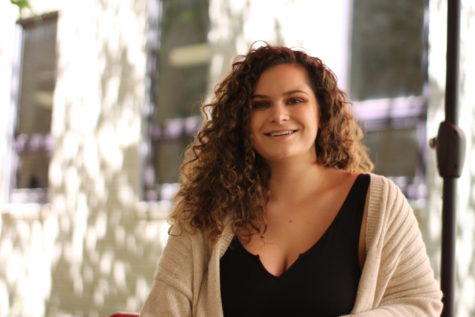“Mom please,” I screamed until my throat hurt.
My mom laid motionless on my parents’ bed. I begged her to show a sign that she was okay. Barely conscious, she couldn’t even open her eyes. My heart was beating out of my chest, and my body went cold. After countless unanswered calls to my dad, I dialed 911. I explained that my mom is a type one diabetic and her blood sugar had dropped to 22 mg/dL. It’s supposed to be around 100 mg/dL.
“Please hurry,” I begged. I ran to the front door, waiting. I wanted the front door open when the paramedics arrived.
I heard sirens in the distance. It took them a couple of minutes to arrive, but it felt like a lifetime. The ambulance pulled up, and the paramedics rushed inside.
I immediately told them about my mom’s condition. They forced her to swallow an extremely sugary paste so that her blood sugar would come back up.
As the medicine began to work, one of the paramedics reassured me I had done everything right and it was incredible I had remained as calm as I did. I didn’t feel like I did anything extraordinary.
The medicine’s effects kicked in and my mom seemed coherent. I knew she was okay when she started to cry in front of everyone. I asked her why she was crying and she said she was embarrassed. I didn’t understand.
Both of my parents are type one diabetics. As teenagers, their pancreases stop working which means that their bodies can’t break down sugar. It affects nearly every aspect of their lives. My parents waited 10 years to have a kid because pregnancy can be dangerous for diabetic mothers. That’s also why I’m an only child. I’ve checked my parents’ blood sugar, witnessed the high and low sugars, and watched how they ate differently since I was born. The disease is normal in my home.
Around 14, my doctor told my family and I about a study with the goal of learning if type one diabetes is preventable. She told me I was a perfect candidate since both of my parents have the disease. This also puts me at roughly a 10 to 25 percent chance of being diagnosed. Once a year they test my blood to see if I have the genetic markers for diabetes.
The first few years, I wasn’t nervous at all. I was actually excited because I felt like I was making a contribution to science. Diabetes usually skips to the second child born, so I felt like I had no need to be worried as an only child. Another reason why I never stressed was because the disease was so normalized that I knew how to manage it and I had a great support system at home if my results came back positive.
At 17, I went to Dallas to get my blood taken. For the first time, I was petrified because I has just turned the same age as my mom when she was diagnosed. Growing up had also taught me how life altering this disease is. I didn’t want to have to go through what my parents did: the needles, the nerve damage, the highs and the lows of a constantly fluctuating blood sugar.
A tiny needle pierced my skin as I looked the other way. I couldn’t watch. I just wanted to leave.
I recently found out that my results came back negative. However, I had long since accepted that the outcome was out of my control by the time my mom texted me about the good news. I let out a sigh of relief when I saw why my phone screen lit up. A weight had been lifted from my shoulders.
In recent years, I’ve found it challenging to embrace change. Diabetes makes my parents’ lives more difficult, but they are still happy. Adversity creates strength, and my parents overcame it. Even though it might’ve felt like the end of the world when they were diagnosed, it wasn’t. Life went on.
Whether or not I get the disease later on, life will still present me with obstacles that are difficult to overcome and I’m ready to take them on.
Sometimes life can be unpredictable and your world can be turned upside down unexpectedly. However, you have to accept that challenges are unavoidable. It is your decision if you let the fear of a “what if” consume you or if you rise above it and accept what comes your way.








